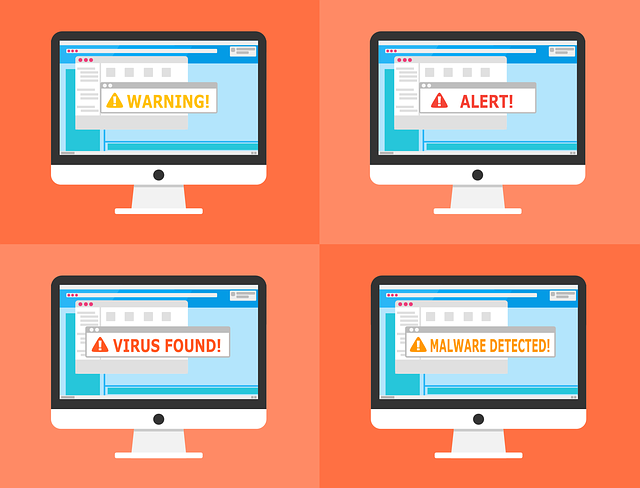We’ve all heard about viruses and just how dangerous they can be for our devices. 32% of the world’s computers are infected with viruses at any given time. This is a terrifying thought, especially when you consider that viruses can be transmitted between devices.
Viruses can spread in several different ways. In the majority of cases, they are spread unintentionally. Much like a biological virus, it can transmit to other devices without the knowledge of the user.
Around 16 million American households are affected by computer viruses each year, and 1 million of those will lose money as a result of a computer virus. It is important to understand viruses and how you can protect your devices from them.
What is a Virus?
A virus is a malicious program or code that can be spread from device to device. They are designed to damage a device or steal data from it. It can spread to different devices by making copies of itself.
There are different types of viruses, and each one is designed with a different purpose in mind. It’s important to know the differences to understand which files or programs on your device might be affected by it.
- File Infecting Virus – These are also known as parasitic viruses. They attach themselves to executable files such as the ones with .exe extensions. These can damage your hard drives, causing you to lose all your data.
- Macro Virus – These viruses attach to Word or Excel documents and are spread when the files are sent through email attachments or external hard drives.
- Browser Hijacker – This virus can change the settings on your browser. It can also redirect you to malicious websites that can install other malware on your device. A clear sign of this virus is that your browser’s home screen will change by itself.
- Web scripting virus – A virus that is often found on popular websites. It can steal your cookies (online data). What’s more dangerous about this virus though, is that it overwrites code on a website which allows it to insert links that will install other malicious software on your device when you click on them.
- Boot sector virus – These viruses are commonly found on physical media elements such as CDs, hard drivers or USB sticks.
- Polymorphic Virus – As the name suggests, this virus can change its code (morphing into different versions). By doing so it can evade antivirus programs.
- Resident Virus – This virus attaches itself to your computer’s memory. This allows it to infect files within your device and damage the operating system leading to files and programs being corrupted.
- Multipartite Virus – A virus that is extremely infectious and can easily spread across devices. It can affect your computer’s memory, files and operating system.
All of the viruses above are dangerous. It is important to understand what you can do to avoid having your device infected by one of them as they can be extremely destructive, especially if you are not prepared.
How Can a Virus Get Onto my Device?
Viruses can spread in several different ways. Understanding how they spread is important because it will give you a better chance at avoiding them. Keep this in mind at all times while working on your device.
The majority of viruses make their way onto your device from an external source. This is why it is crucial to always be aware of what is going on on your device and to know what you must avoid while using it.
The first way that viruses can spread is through emails. Phishing scams are used by cybercriminals to target their victims. Oftentimes they will send out fraudulent emails with links or attachments. As soon as you interact with the link or attachment, the virus will be downloaded onto your device.
Phishing scams have become much more difficult to spot in recent years. Cybercriminals are perfecting their technique by using social engineering. This means that they will replicate an email from a company that you know and trust, making it more likely that you will interact with it.
Another way that viruses can make their way onto your device is simply through your browser. The internet is riddled with links that can install viruses on your device when you click on them. These links can come in different forms, from images to popup ads.
This makes it tricky to identify them. However, you should always avoid visiting sketchy websites that do not have the HTTPS prefix. HTTPS protocols are encrypted and more secure than the HTTP protocol.
Viruses can also make their way onto your device through external media such as hard drives, CDs and USBs. You should never use an external media device if you don’t know where it has come from. Even if you are using someone else’s device you must still take care as a virus could be on it without their knowledge.
Is There Anything I Can do to Protect my Device Against Viruses?
With viruses being well hidden across the internet, it can be tricky to avoid them. Luckily, there is a cybersecurity tool that you can use to keep your device protected against viruses and other malware.
A premium antivirus software is a must-have to protect your device from any malicious software. Antivirus software will constantly scan your device for any malware such as viruses. Once they have been identified, the software can quickly take action to remove the threat from your device.
However, you must ensure that your antivirus software is always kept up to date. Software updates are regularly sent out by developers to fix any potential flaws that have been found in the antivirus program. Updates will also add extra layers of defense against new criminal tactics that emerge.
It’s not enough to just rely on antivirus software to take care of your device. Even if your software is kept up to date and is always active, you must still be cautious while you’re online. Prevention is the best defense against malware, and avoiding them altogether remains the best way to stay safe. However, should you get caught out, the antivirus software will be there to help you.







Recent Comments